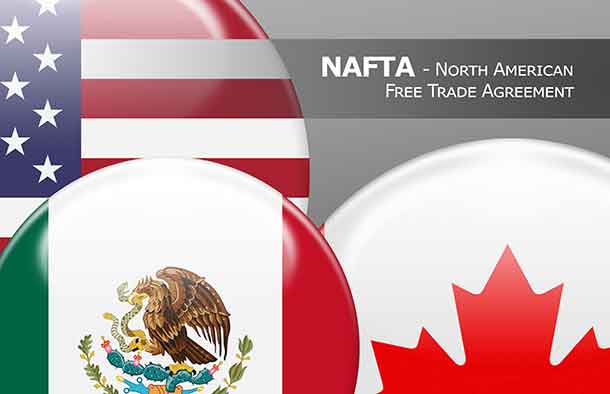
The new Trans-Pacific deal will boost agri-food industries. But it’s a nail in the coffin for Canada’s protectionist supply-management sectors
 By Sylvain Charlebois
By Sylvain Charlebois
Senior Fellow
Atlantic Institute for Market Studies
Canada is making its trade intentions crystal clear and that’s good news for most agri-food industries, although our supply-management sectors face big challenges.
Even as the North American Free Trade Agreement talks continue, we’ve learned that the Trans-Pacific Partnership isn’t dead after all, although the trade deal among Pacific Rim countries has a new name: the Comprehensive and Progressive Agreement for Trans-Pacific Partnership (CPTPP).
Along with Canada, it includes Japan, Mexico, Malaysia and seven other countries. The pact was made without the participation of the United States, which represented 60 percent of the original group’s combined gross domestic product (GDP). This was a massive loss but nonetheless, CPTPP remains an important global deal.
The original deal was all about the United States and Japan trying to counter China’s economic emergence. Donald Trump pulled his country out of the deal when he became U.S. president, but the world seems to be marching on without the United States.
CPTPP is NAFTA – minus the United States, of course, but with new links to rapidly-growing markets.
For Canada, this is a significant gain on the world stage. If the Canada-European Union Comprehensive Economic and Trade Agreement (CETA) was an opportunity for Canada to become a trading platform between two continents, CPTPP is a clear statement that Canada wants to become a relevant player worldwide.
This can only make our agri-food sector much stronger. Canada’s grain and livestock industries will now have the chance to make a dent in many Asian markets.
But for the supply-managed sectors, which believe that serving Canada’s population of 36 million is enough, signing CPTPP represents a new challenge. The new deal will allow more dairy, eggs and poultry products into our market. Details haven’t yet been released, but it appears CPTPP will loosen tariffs on some products currently not allowed in our market.
So Canadian supply management’s supremacy is slowly disintegrating. If CETA created a breach in the highly protectionist scheme, CPTPP will blow it wide open.
Maintaining supply management has been, to a large extent, a disservice to the sector.
Those still in the system are content and are desperately trying to convince Canadians that supply management serves them well. But it only serves those still in the system.
Even though supply management was established to protect the family farm, the number of dairy farms in Canada has gone from more than 40,000 to about 11,000 in the last few decades. With poultry and egg production, we’ve seen even more consolidation.
This is a worldwide trend that begs the question: Why we are maintaining the status quo?
Through the years, most politicians supported supply management – with the notable exception of Maxime Bernier, who likely lost last year’s federal Conservative Party leadership race as a result. But governments are signing pacts that are slowly destroying supply management from the outside – while publicly supporting the regime.
Meanwhile, some major stakeholders aren’t waiting for governments and are hedging their bets against supply management. Canadian companies such as dairy-products giant Saputo have already taken a position in the Asia-Pacific market by investing in Australia.
Canadian supporters of international trade should recognize, no matter the politics, that Prime Minister Justin Trudeau’s Liberal government did the right thing in agreeing to CPTPP. It validated the work of the previous Conservative government by capturing the essence of the TPP deal.
Signing this deal will mean that, by 2025, Canada’s farmers and food processors, with their ambitious targets, could increase Canada’s agri-food exports to at least $75 billion annually.
CPTPP members probably hope the United States will eventually come to its senses and embrace multilateral agreements again. Until then, cross-Pacific trade will only get stronger.
But we need to remember that supply management requires a different approach – one based in reality. Instead of fuelling the already highly-polarized debate on the issue, we have to think about what Supply Management 2.0 will look like. And considering what’s to come, these sectors are running out of time.
Sylvain Charlebois is dean of the Faculty of Management and a professor in the Faculty of Agriculture at Dalhousie University, Senior Fellow with the Atlantic Institute for Market Studies, and author of Food Safety, Risk Intelligence and Benchmarking, published by Wiley-Blackwell (2017).
© Troy Media
The views, opinions, and positions expressed by all columnists and contributors are the author’s alone. They do not inherently or expressly reflect the views, opinions and/or positions of NetNewsLedger.
